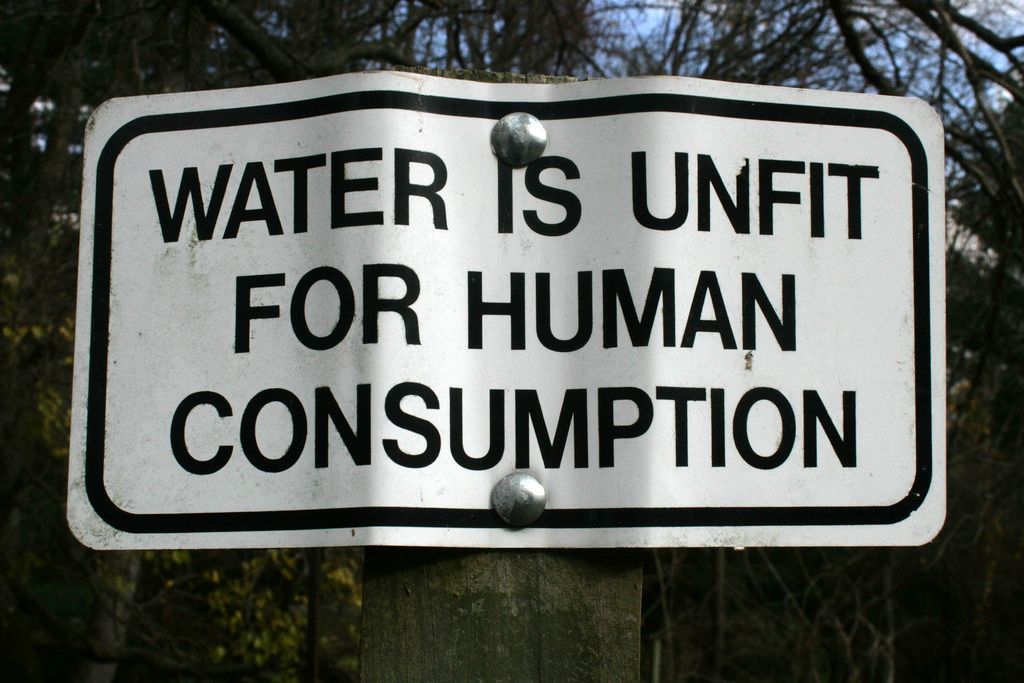“Climate change threatens SDG progress”
December 27Climate change is one of the most crucial topics in the world’s agenda today, writes Metolo Foyet, 20, a Commonwealth Correspondent from Cameroon now living in Niger, and could reverse the progress in reducing poverty – among other impacts on the Sustainable Development Goals.
Watching the documentaries “The Inconvenient Truth” and “The Age of Stupid” made me realise the urgency in tackling the threat that climate change constitutes to the survival of humanity.
My enthusiasm for climate started two years ago; news headlines had changed from security-like topics to environmental threats. Interviewees complained about unexpected precipitation or wind patterns. Women from rural zones lamented the lack of water. Landscapes had changed and rainfall had become more erratic. Fishermen deplored stronger storms. People suffered from more heat-related illness and diseases.
I did not feel particularly concerned until I went to Niger, where I experienced the driest and dustiest wind I had ever seen. My eyes stung and my skin broke. Back in Accra, floods had become regular, destroying buildings, crops and human lives in the process. The same year, the USA witnessed billions-of-dollars-lost floods, tornadoes and wild-fire in the states of Texas, Kansas, Oklahoma, Utah, Carolinas and Washington. I realised climate change impacts are felt in both the developed and the developing worlds; and by every aspect of society.
Higher temperatures affect agricultural production, health and put wildlife at risk. Drought, desertification, fire and floods affect social and economic conditions. Rising sea levels destabilise the ecosystem and biodiversity. This could eventually increase the number of refugees worldwide and shorten resources needed to sustain the escalating world’s population.
In my undergrad thesis, I spotted inter-relationships among three areas: climate change, SDGs and plastic pollution. Climate Action (SDG13) is intrinsically related to every SDG and if not tacked will have a significant impact on the achievement of each of them. Unremitting degradation of natural resources such as medicinal plants, aquatic organisms, food, wood, and land degradation might lead to poverty.
Climate change has an impact on agriculture, which is the primary activity in Africa. No agriculture means more poverty (SDG1), hunger (SDG2), poor health and well-being (SDG3). Without the latter, one cannot study efficiently, thus no education (SDG4), and failure in SDGs 5 and 10. If people are hungry, not educated and sick, SDG9 will not be attained due to the nerve-racking quality of the environment. This will give room to an unskilled and poorly motivated labour force.
If people are not happy enough to work and feed competition, imported goods and services will monopolise the market; the rising living-cost and unshackled poverty will prevent people from accessing SDG7. Without decent work and no economic growth (SDG8), we will be too poor for SDG12 and too selfish for SDG11.
Unavailability of water and energy sources will impede SDG10: girls will spend more hours looking for water to fetch before going to school and firewood will constitute a burden on environmental health threats. Physical and emotional stresses associated with the gathering of environmental resources and unequal access to land and natural resources would mean failure in promoting gender equality, women empowerment and maternal health improvement.
Climate change also affects SDGs 14-15, which include SDG6. Environmentally related diseases caused by unsafe water, poor sanitation, indoor and local air pollution (all favorable for vector multiplication), would have a reverse effect on the reduction of child mortality.
The above mentioned and food insecurity, also caused by environmental degradation, might lead to poor local economic opportunity, rural-urban migration and overcrowding, from which might spread contagious, sexually transmitted and other diseases. Drought and floods place stresses on the availability of water for domestic use, which will eventually worsen with the growing population and rapid urbanisation the world is facing.
Water deficits will have negative effects on hydro-electric generation (SDG7), industry (SDG9) and food security (SDG2). Therefore, if all the goals are failed, how can we achieve SDGs 17-16: growth development and partnerships for goals, peace, justice and strong institutions?
Despite the numerous disadvantages of plastic pollution, it remains the center of the lucrative recycling industry. Waste management could help tackle SDG1, 2, 5, 7, 8 and 10. Training could be delivered, thus tackling SDG 4. Recycling renders cities cleaner, thus reducing exposure to rodent infections and diseases, significantly impacting the achievement of SDGs 3, 6, 11, 14 and 15.
Other alternatives are natural packaging solutions and the usage of plastic in the creative and infrastructure industries (mixing melted plastic with sand, etc.) to make bricks; consequently appreciably impacting the realisation of SDGs 9, 12 and 17.
The above-mentioned altogether are part of climate action (SDG13), which could eventually lead to the attainment of SDG16.
What do you think?
Photo credit: woodleywonderworks water is unfit for human consumption via photopin (license)
…………………………………………………………………………………………………………………
About me: I am a social entrepreneur with focus on education, agriculture and cybersecurity.
I have a track record of adding value to organisations by delivering innovative projects that engage stakeholders and expertise in public affairs, strategic communications, translation, research and development, product design, grassroots development and project management across the not-for-profit and private sectors.
I paint, write, and am an environmental, travel and sports enthusiast. I envision a career in the public service, especially the UN.
…………………………………………………………………………………………………………………
Opinions expressed in this article are those of the author and do not necessarily represent the views of the Commonwealth Youth Programme. Articles are published in a spirit of dialogue, respect and understanding. If you disagree, why not submit a response?
To learn more about becoming a Commonwealth Correspondent please visit: http://www.yourcommonwealth.org/submit-articles/
…………………………………………………………………………………………………………………





